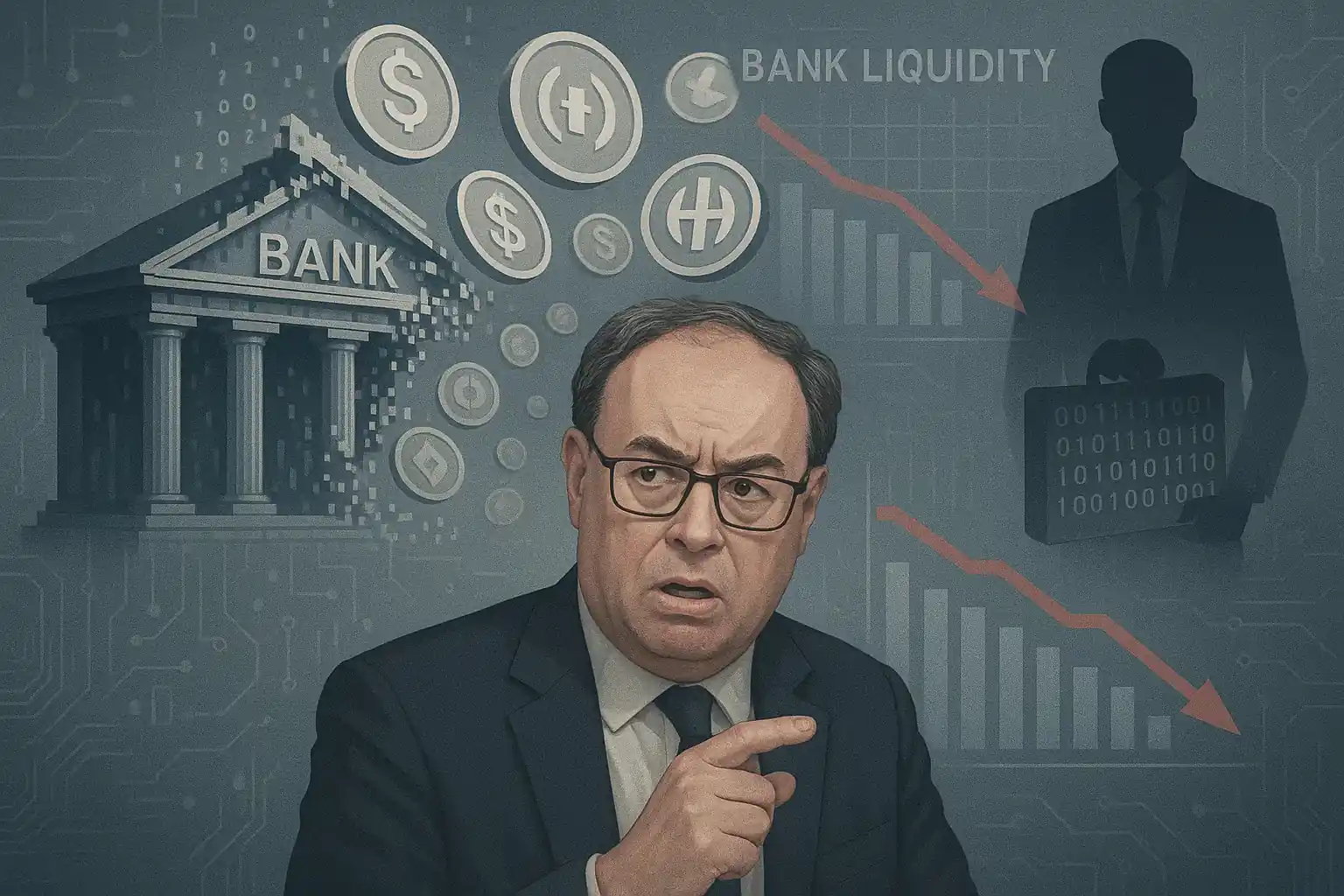Andrew Bailey, Governor of the Bank of England, has come out strongly against the idea of large banks being able to issue their own stablecoins. According to him, this could have very negative effects on the financial system.
Bailey's statements are in stark contrast to what is happening in the United States, where stablecoins are seen as a key element in making the country a global power in the crypto, thanks in part to the renewed influence of former President Donald Trump.
Talking about the future of money and banking, Bailey said he prefers tokenized bank deposits-that is, digital versions of traditional fiat currency-to privately issued stablecoins. He pointed out that the latter could undermine financial stability, making credit more difficult and facilitating money laundering.
The Governor of the Bank of England warned that the uncontrolled rise of stablecoins could threaten fundamental pillars of modern finance, such as the control of the money supply and the provision of credit. It also pointed to the risk that banks could lose customers to stablecoins, leading to possible liquidity problems and sudden large-scale withdrawals.
"If stablecoins take money out of the banking system, banks have less capacity to lend," Bloomberg reiterated, citing Bailey.
Bailey added: "Such a runaway could resemble a digital version of a bank run," referring to the chaos that erupted with the collapse of FTX.
There is also concern about crime. Bailey, who also heads the Financial Stability Board (FSB), said that unregulated stablecoins would allow huge amounts of money to move anonymously, facilitating money laundering and other financial crimes.
This cautious approach contrasts sharply with that of US lawmakers. Indeed, Washington is facilitating the use of regulated stablecoins through the GENIUS Act. One of the results is the creation of USD1, a stablecoin linked to Trump and backed by the dollar, which has already reached a market capitalisation of $2.2 billion.
Even in Europe, there is growing concern about the dominance of USD stablecoins. A recent report pointed out that this could threaten the independence of the euro, leading to stricter regulations through the MiCA to incentivise euro-based digital innovation.
Bailey's statements also seem to indicate that the UK does not intend to launch a digital central bank currency(CBDC), such as a 'digital pound'. According to him, the most 'sensible' thing to do is digitalise existing commercial bank deposits, a solution that integrates well into the current monetary system without disrupting economic policies.
In the end, his support for tokenized deposits is consistent with the Bank of England's broader objective of modernising payments while maintaining the traditional role of banks in credit and lending.








